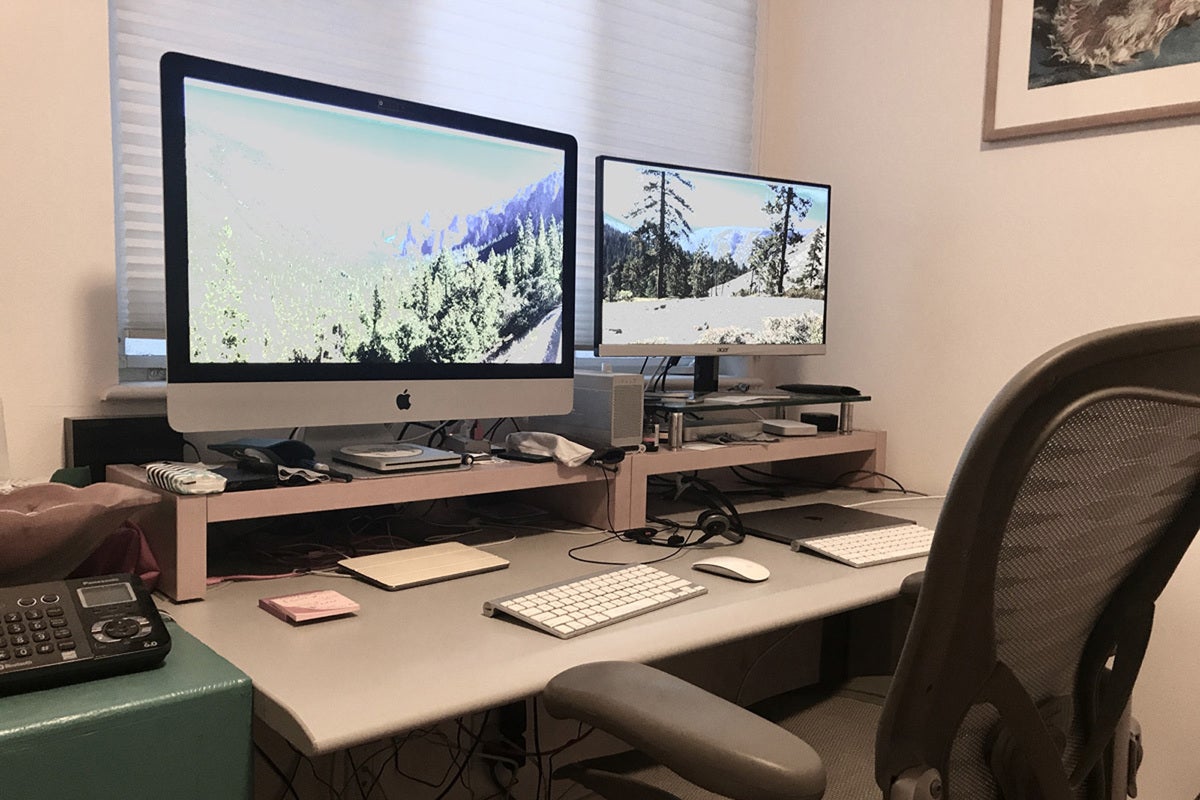5 Things You Need to Know About How to Work Remotely
Working remotely has become a popular option for employees. It can
be particularly beneficial for people who are looking to balance work and
family life, because they don't have to commute to an office every day. Working
remotely also saves money on gas and wear and tear on your car, but it's not
always easy. There are some things you need to know before starting this type
of work arrangement.
It's no secret that technology has changed the way we work. It's
become easier than ever to collaborate with coworkers around the world, and as
a result, many companies make use of remote work arrangements.
While working remotely may seem like something out of an episode
of Star Trek, it's actually a reality for millions of people around the globe.
The number of people working remotely is expected to increase by 3 million over
the next three years—and with good reason: there are many benefits to doing so!
You need great time
management skills
You need to be self-motivated.
Working remotely is a great opportunity to take control of your own success,
and if you don't possess a strong sense of self-motivation, it's probably not
the right work style for you. If working from home or in an office makes no
difference to you as long as the job gets done, then remote work might not be
right for you either.
The best way to make sure that
remote work doesn't drive you crazy is by having excellent time management
skills. Time management isn't only about staying on top of deadlines; it's also
about setting goals and tracking progress toward those goals—and being honest
with yourself about where things stand at any given moment so that there are no
surprises later on when something goes wrong (or right).
Consistent
communication is key.
You'll have to be able to
communicate effectively with your team and clients, as well as anyone else who
will be affected by your remote-working situation. You should have a clear idea
of what's expected of you and how best to achieve it.
Even if you're working remotely
for only one person, keeping in touch with them is important. It's crucial that
they know what's going on with the project at all times—any delays or problems
can be addressed quickly and efficiently.
Get the right
technology
When you're working remotely,
there are a lot of things that can go wrong. Here are some tips for making sure
your technology is up to snuff:
1. Your computer has to be in good shape. If you don't have a new
computer, it's probably time to get one. And if you do have a new computer,
make sure it has everything you need (like a webcam) before starting work.
2. Make sure your internet connection is fast and reliable. You'll want constant access to
the internet because this is how your boss will communicate with you when they
want something done or need an update on where things stand with a project.
3. Make sure all your devices are charged up and ready to go! If one device dies on you while
working remotely, then that could be bad news for everyone involved—especially
if it happens during an important meeting or presentation!
4. Have backups ready at all times! You never know when something
might happen that makes it impossible for you to access your work files online
(or even offline), so make sure that if anything goes wrong with one method of
sharing files with others (like emailing them), then there's another method
available too (like sending files through Dropbox).
5. Make sure you have all the files you need with you! Not only will this save time,
but it also means that if something happens to your laptop (which has happened
before...), then there's still a copy of all your work saved somewhere else.
Set up a home office
that supports your productivity
The first thing you need to do is set up your home office so that you can be as
productive as possible when working remotely. Here are some tips:
·
Get a good
chair. You're going to be sitting in this chair for hours on end, so make sure
it's comfortable and supportive of your posture.
·
Set up an
ergonomic desk that will help you feel supported while typing, using the
computer mouse, or writing notes on paper. If possible, put the keyboard tray
about 6 inches below eye level for easier viewing (and minimize neck strain).
·
Put your
computer on an adjustable stand rather than having it right next to your desk;
this allows you to adjust its height easily depending on whether you're sitting
or standing while working. If possible, consider getting a second monitor (or
even three!). This will allow you greater productivity by allowing multiple
applications at once without having them all open simultaneously (which can
slow down performance). It also keeps everything within arm's reach without
requiring constant movement from one place in order to access specific
files/programs etcetera which would otherwise require someone like me who
spends most days behind my laptop screen anyway - meaning less clutter too!
The second thing is to keep the lighting in your room as bright as possible. This
will help you to see what you're doing more clearly and therefore make it
easier for you to work more efficiently. If possible, consider investing in an
anti-glare screen (for your laptop) - this will make it easier for you to view
things without getting distracted by reflections off shiny surfaces etcetera!
And the last thing is to make sure that you have everything you might need to hand -
such as pens, paper and so on. This will help you to keep focused on what needs
to be done rather than wasting time looking for things which could easily be in
the same place as where you're working anyway! If possible, try keeping a
notebook close by with all the information that
Take regular breaks.
Whether you work for a startup, a
big corporation or are self-employed, it's important to take regular breaks
throughout the day. Taking breaks gives your mind time to rest and recharge so
that when you return to work, you'll be more productive than if you had just
kept going without taking any time off.
Setting aside specific times in
which to take breaks is one of the most effective ways of ensuring they happen
regularly. For example, if most of your work involves using a computer screen
(which is typical), set an alarm on your phone every hour or two during the
day—or use an app like Workrave (for Windows) or Time Out! (MacOS) that will
remind you when it's been 30 minutes since your last break—and get up from your
desk and move around for 5-10 minutes before returning again. You don't even
have to leave the building—a quick walk around the block should do just fine!
Working remotely can
be great, but some things you need to know before you start.
Working remotely can be great,
but there are some things that you need to know before taking the plunge. It's
not as simple as pushing a button and being able to work from anywhere at any
time. Here are five things you should know before working remotely:
·
You need to
be self-disciplined. Working somewhere else means being away from your
coworkers and manager—and that means it's much easier for procrastination or
distraction to creep in. Make sure your schedule is organized, so that when the
workday is done you're ready for a break rather than wondering what else there
is left on your plate.
·
You need to
be good at communicating well with others (including virtual coworkers). Remote
workers often end up doing more project management than their office
counterparts do; so if communication skills aren't your strong suit, consider
training them up by reading some books about managing teams (or asking someone
who does it well for tips).
·
Time
management skills are key in this type of position because there's no one
looking over your shoulder telling you when the day ends—you have to set those
boundaries yourself! It can be difficult getting used to this kind of freedom
at first but once established into a routine it should become second nature
pretty quickly… just make sure not too much gets scheduled during those
"off" hours!
Conclusion
Working remotely is a great way
to make sure that you're getting the most out of your work day. It's not for
everyone, but if it works for you, then it can make your life much more
manageable and rewarding. However, there are a few things to keep in mind
before jumping into remote work:
First, be disciplined! Make sure that
you have everything set up so that when 5 pm rolls around, you know where all
of your tasks are at and what needs to be done next. If necessary, put
reminders on your calendar or create some sort of checklist for yourself so
that nothing falls through the cracks during the weekdays when no one is
looking over your shoulder (or over Skype).
Secondly—and this may sound
silly—but communication is key! Don't forget how important words are when
communicating with others; especially over email or text messages because these
forms don't convey tone well enough sometimes which can lead people into
misunderstanding situations (and maybe even being offended). The last thing
anyone wants before going home each day is an angry coworker sending them an
angry email about something insignificant like how many times per week does
someone need access their shared Google Drive folders? So please do us all a
favor: write clearly and politely if possible!
Lastly: self-motivation. Working
remotely requires self-motivation because there aren't always deadlines looming
overhead like they might be when working face-to-face with other people who
depend on those deadlines coming from time every weeknight at 5 o'clock
sharp."
If you’re looking to take the
leap into remote work, we hope that these tips will help. There are a lot of
amazing benefits to being able to work from anywhere—and we know that this list
isn’t even close to comprehensive! But as with any major change in your life,
it pays off big time if you do your research and prepare yourself ahead of
time. We’re excited for you!


